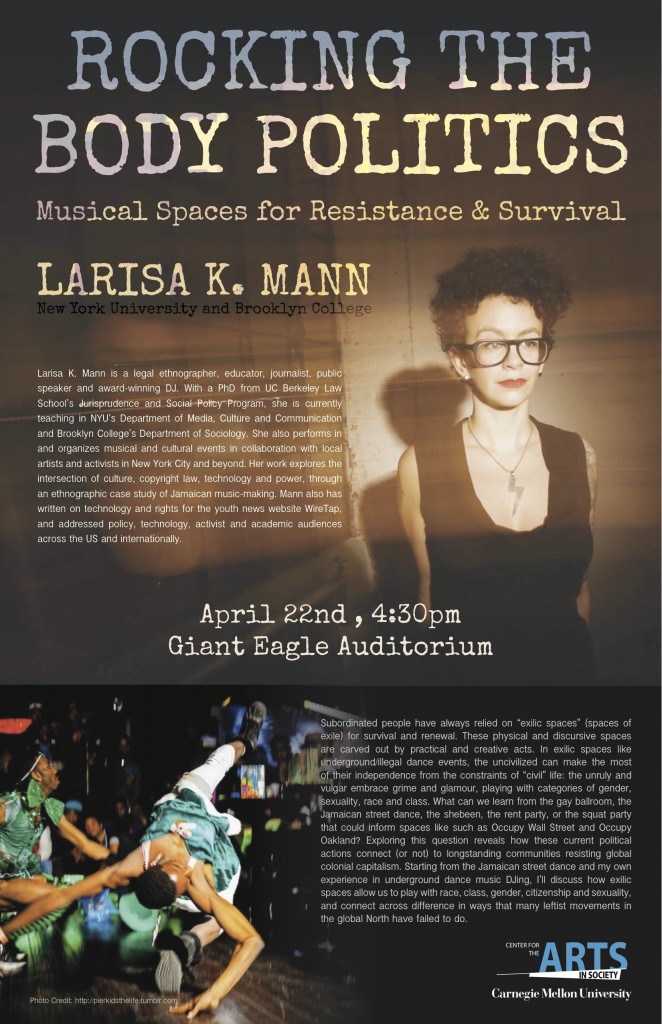I’m speaking today about a topic that I’ve been living for years, and only recently (and with the help of awesome Dj/Activist/thinkers like DJ Ushka) been able to articulate in a public way, and combine with my other scholarship: “Rocking the Body Politics; Musical Spaces for Resistance & Survival.” This is an extension of the workshop Thanu/Ushka and I organized at the Allied Media Conference last year on “Radical Organizing from the Dancefloor,” combined with ideas from my research and dj experience that I also presented at the Clandestino Institut in Göteborg, Sweden last year (Exile, Resistance, Occupation, Music).

I’m thinking about the value of remaining outside formal systems of law, of technology, of dominant social norms. This comes from my experience of squats and warehouse parties, underground nightclubs, pirate radio, rent parties, and street dances – I’m thinking about how people whose identities – and communities- are defined as abnormal or pathologized as dangerous and broken (from immigrants to queer kids to people of color to poor folks in general) carve out spaces to foster and express their shared culture. These spaces are often illegal and hard to find, which is sometimes discussed as a negative, but in some ways this protects them from being assimilated, digested and erased. By remaining outside and claiming that space, communities build up social power which can allow them to engage more assertively with the mainstream. At least, that’s what I see, and part of why I am wary of simply extending institutions that serve the powerful (from copyright law to property licenses) to people who are marginalized. Because inclusion on the wrong terms just maintains the overall hierarchy. This is stuff I try to think through in my dj sets, and increasingly in public conversations, using sound and music.
This will be my second time speaking at CMU, and my third time speaking in Pittsburgh – the first time I was lucky enough to give a talk (here’s the video! and a nice review!) at Dorkbot Pittsburgh, also with the help of the awesome Studio For Creative Inquiry, which shakes things up around art & technology in all kinds of ways, especially with the help of the super cool Golan Levin who designs interactive art and sound artifacts & experiences as well as teaching at CMU.
This is part ofa longer set of interesting musical conversations that Carnegie Mellon has been hosting as part of its “Listening Spaces” media initiative. I was invited to speak at their symposium “21st Century Perspectives on Music, Technology and Culture” last year, alongside the awesome Jonathan Sterne (whose recent book MP3: the meaning of a format, is super fascinating for all of you interested in the mechanics, history and politics of audio processing), as well as Trebor Schulz who does interesting work on online labor, and Graham Hubbs, a philosopher who works on ethics in digital spaces.
(the image at the bottom of the poster is from scenes from Pier Kids – the Life, a forthcoming documentary about the queer and transgendered youth of color that congregate at the Christopher Street Piers in New York, who are fighting erasure from mainstream society and also as their spaces at the margins are being erased by property development – check the “safe spaces save lives” campaign from the amazing FIERCE for more.)